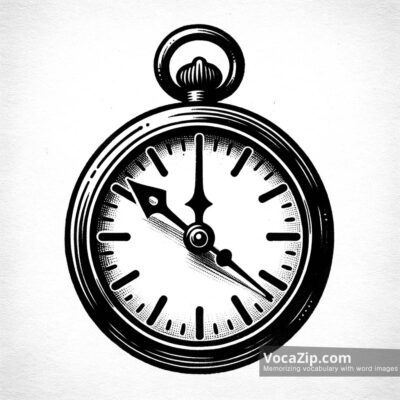punctual meaning
punctual :
on time, prompt
Adjective
▪ She is always punctual for meetings.
▪ She is always on time for meetings.
▪ The train was punctual today.
▪ The train was on time today.
paraphrasing
▪ timely – happening at the right time
▪ prompt – quick or on time
▪ on schedule – happening at the planned time
▪ on the dot – exactly on time

Pronunciation
punctual [ˈpʌŋk.tʃu.əl]
The stress is on 'punc' and sounds like 'puhng-chu-uhl'.
Common phrases and grammar about punctual
punctual - Common meaning
Adjective
on time, prompt
Part of Speech Changes for "punctual"
▪ punctuality (noun) – being on time
▪ punctually (adverb) – in a timely manner
Common Expressions with "punctual"
▪ be punctual – to be on time
▪ punctual arrival – arriving on time
▪ punctual schedule – a schedule that is on time
▪ punctual person – someone who is always on time
Important examples of punctual in TOEIC
Vocabulary examples from the TOEIC test
In TOEIC vocabulary questions, punctual is often used to describe a person or service that is on time.
Example of a confusing word: punctuate (to add punctuation marks)
Grammar examples from the TOEIC test
As an adjective, punctual is used to describe nouns, often in questions about habits or schedules.
punctual
Idioms and fixed expressions in TOEIC
punctual as clockwork
means 'always on time', used to describe someone very reliable.
make a punctual entrance
means 'to arrive exactly on time', used for formal occasions.
Differences between similar words and punctual
punctual
,
timely
differences
Punctual means arriving at the exact time, while timely means happening at a suitable time.
Words with the same origin as punctual
The origin of punctual
The word 'punctual' comes from the Latin 'punctualis', meaning 'point' or 'punctuality', which relates to exactness.
Word structure
It has the root punct (point), and the suffix ual (relating to), so punctual means 'relating to a point in time'.
Words with the same origin
The root of punctual is punct (point). Words with the same root include punctuate (to mark), puncture (to pierce).
Please select an image in the quiz
Previous post and next post






